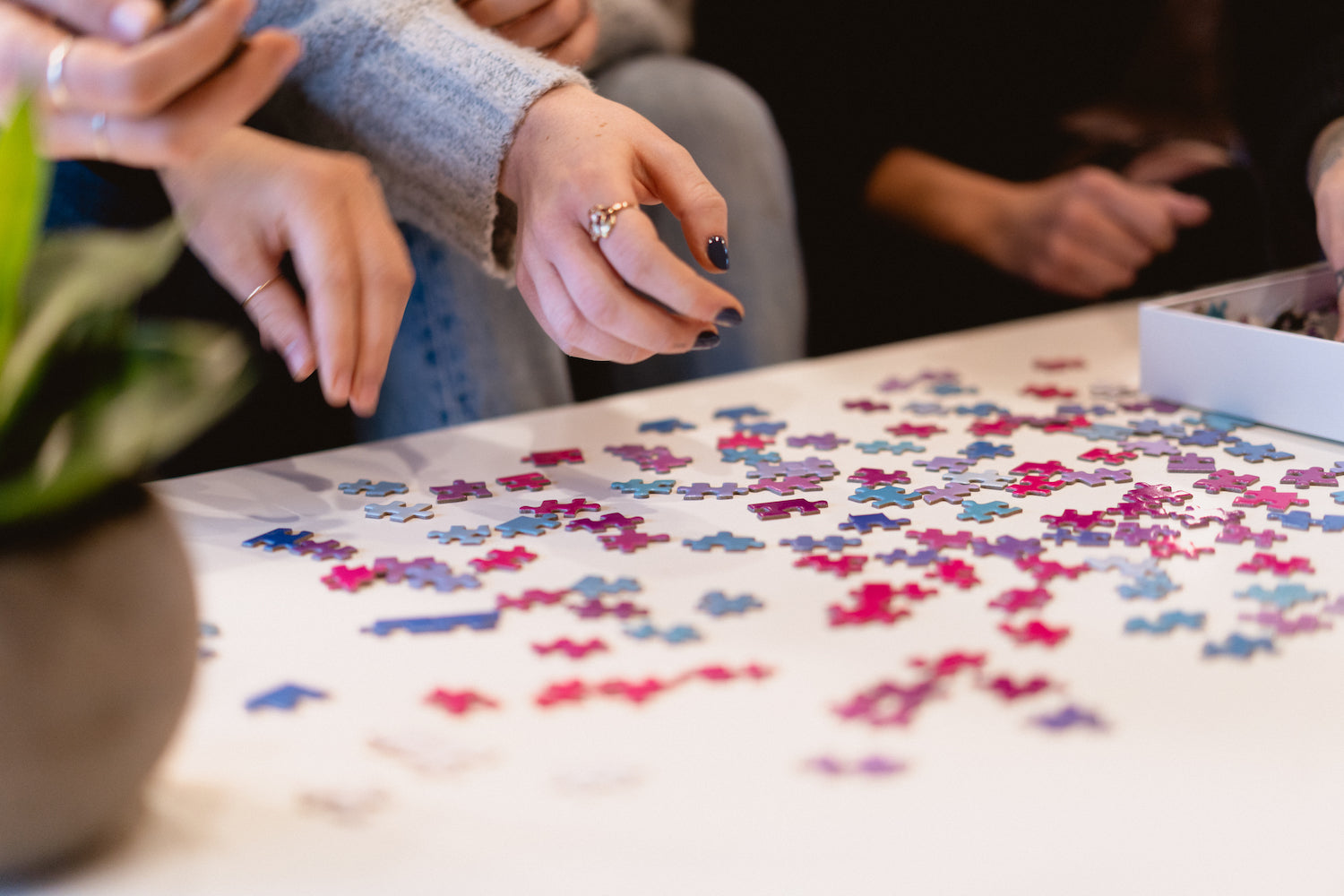Recent Posts

4 Health Benefits of Daily Jigsaw Puzzling
Not only is puzzling a great way to unplug, but it’s also good for your brain. In fact, the analog activity offers many of the same benefits of exercise and meditation. With so many of us logging more time at home, it can be uplifting to know some of our hobbies are good for us. The hours we spend pouring over a puzzle aren’t just relaxing, they’re also beneficial for our brains. Here are four main health benefits of daily jigsaw puzzling.
1. Boosts brain power
In the way an exercise class is a full-body workout, puzzling is a full-brain workout. You have two sides of your brain responsible for different things. In general, your right side controls your emotion, creativity, and intuition. Your left controls logic, order, and systems. When you piece puzzles together, the two sides of your brain have to work together. This boosts cognitive function.
2. Improves memory
While having Google at our fingertips is nothing short of miraculous, it may not be helping our short-term memory.
Yet, when you pick up a puzzle piece and start scanning the sea of pieces for a similar shape and color, you’re sharpening your memory. You’re exercising the part of your brain that needs to retain this info—your short-term memory.
3. Boost spatial awareness
Puzzling helps build spatial awareness, which benefits us all, especially children and the elderly. The spatial skills that puzzles and games help build in children studies show are key for success in STEM (science, technology, engineering, and math) subjects. For older adults, keeping these spatial skills sharp can help improve balance and ward off early-onset dementia.
4. Reduces stress
Our modern mode of multitasking creates stress in our brains. We weren’t made to do more than one thing at a time. When you sit down for your daily pass at your jigsaw puzzle, you’re focused on the sole task of putting pieces together. And having this singular focus puts you in a calmer state like meditation does.
A bonus benefit to add to this list is the great feeling you get when two pieces finally lock together. Or when you cross the finish line pressing that last piece into place. That’s a dopamine (feel-good chemical) rush, which is key for your memory and learning. So whether you’re stumped on a tough puzzle or diving into a new one, remember all the brain benefits you’re reaping.



